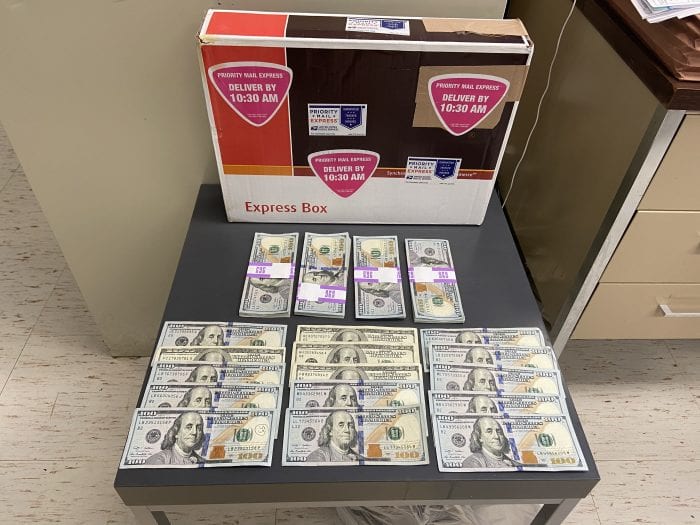Scammers are using a variety of methods tied to COVID-19 economic impact payments to target consumers
The New York State Division of Consumer Protection (DCP) is alerting consumers on Jan. 6 about scammers taking advantage of COVID-19 economic stimulus payments. With another round of economic stimulus payments approved by Congress, scammers will be sending phishing emails, texts and phone calls and using social media to try to steal economic impact payments and your personal information. Consumers are reminded that it’s important to stay vigilant and aware of unsolicited communications asking for your personal or private information.
“Throughout the COVID-19 pandemic, scammers have been hard at work trying to steal money from unsuspecting New Yorkers,” said Secretary of State Rossana Rosado. “With this latest round of stimulus funding on its way, I urge all New Yorkers to be extra diligent and follow simple steps to keep your money and personal identity safe.”
New York State Commissioner of Taxation and Finance Michael Schmidt said, “We all must remain especially vigilant against scam artists trying to steal this latest round of stimulus funding from New Yorkers. We’re sharing valuable information so you can learn how to spot red flags and where to find reliable information so you won’t be caught off guard by con artists.”
New York State Office of Information Technology Services Chief Information Officer Angelo “Tony” Riddick said, “New Yorkers are being challenged like never before by a global pandemic, and to make matters worse, we’ve seen unscrupulous individuals use technology in a desperate and dishonest attempt to scam them out of their own money. Fortunately, New Yorkers can protect themselves against these COVID-related scams if they are armed with the right information. Always be wary of unsolicited phone calls, texts, emails, links or attachments, even if the sender appears to be known. And, never send your personal information via email or text.”
What You Need to Know about Economic Impact Payments
On December 27, 2020, the federal government passed a pandemic relief package. An important component of individual relief, Economic Impact Payments, will be issued to New Yorkers from the IRS.
You don’t need to take any action to automatically receive your stimulus payment if you:
- filed a 2018 or 2019 tax return and are eligible; or
- received one of these benefits (unless claiming a qualifying child under age 17):
-
- – Social Security retirement benefits and survivor benefits
-
- – Social Security Disability Insurance (SSDI) benefits and survivor benefits
-
- – Supplemental Security Income (SSI) benefits
-
- – Railroad Retirement and survivor benefits
- – Veterans Administration compensation (disability, death benefits etc.) or retirement benefits
-
While most people will receive their payment automatically, if you otherwise have not filed taxes recently, you may need to submit a simple Federal tax return to get your check. For more information on the Economic Impact Payments, New Yorkers should visit the New York State Department of Taxation and Finance at Economic Impact Payment information: what you need to know or the IRS at Economic Impact Payments.
Below are tips to help keep your economic impact payment and personal information safe from scammers:
- Rely on trusted sites for information. Visit legitimate, government websites—for up-to-date, fact-based information about COVID-19. Visit the IRS website directly for the latest information on the economic impact payments. Remember, the government will never call to ask for your Social Security number, bank account, or credit card number.
- Delete emails asking you for personal information to receive an economic stimulus check. Government agencies are not sending unsolicited emails seeking your private information in order to send you money.
- Avoid clicking on links in unsolicited emails and be wary of email attachments. See Using Caution with Email Attachments and Avoiding Social Engineering and Phishing Scams for more information.
- Don’t provide personal or banking information. Scammers may ask by phone, email, text or social media for verification of personal and/or banking information saying that the information is needed to receive or speed up your economic impact payment.
- Do not agree to sign over your economic impact payment check. Scammers may ask you to sign over your stimulus payment check to them.
- Be wary of bogus checks. Scammers may mail you a bogus check, perhaps in an odd amount, then tell the taxpayer to call a number or verify information online in order to cash it.
- Do not cash unsolicited checks. Scammers use this tactic to get your bank account information, and you will incur fees when the check is found to be insufficient.
- Be aware that scammers are also able to replicate a government agency’s name and phone number on caller ID. It’s important to remember that the IRS will never ask you for your personal information or threaten your benefits by phone call, email, text or social media.
- Hang up on illegal robocallers. If you receive a call about economic impact payment scams, hang up. Don’t press any numbers. The recording might say that pressing a number will let you speak to a live operator or remove you from their call list, but it might lead to more robocalls, instead.
- Notify the IRS if you are contacted by a potential scammer. If you receive an unsolicited email, text or social media attempt that appears to be from the IRS or an organization associated with the IRS, like the Electronic Federal Tax Payment System, notify the IRS at [email protected].
- Verify a charity’s authenticity before making donations. Review the Federal Trade Commission’s page on Charity Scams for more information.
- Review CISA Insights on Risk Management for COVID-19 for more information.
With assistance from ITS, the Department of Health continues to maintain up-to-date “Stay Cyber Safe” tips and active warnings at https://coronavirus.health.ny.gov/stay-cyber-safe.
The New York State Division of Consumer Protection serves to educate, assist and empower the State’s consumers. For more consumer protection information, call the DCP Helpline at 800-697-1220, Monday through Friday, 8:30am-4:30pm or visit the DCP website at www.dos.ny.gov/consumerprotection. The Division can also be reached via Twitter at @NYSConsumer or Facebook at www.facebook.com/nysconsumer.
-Information provided by the New York State Division of Consumer Protection








